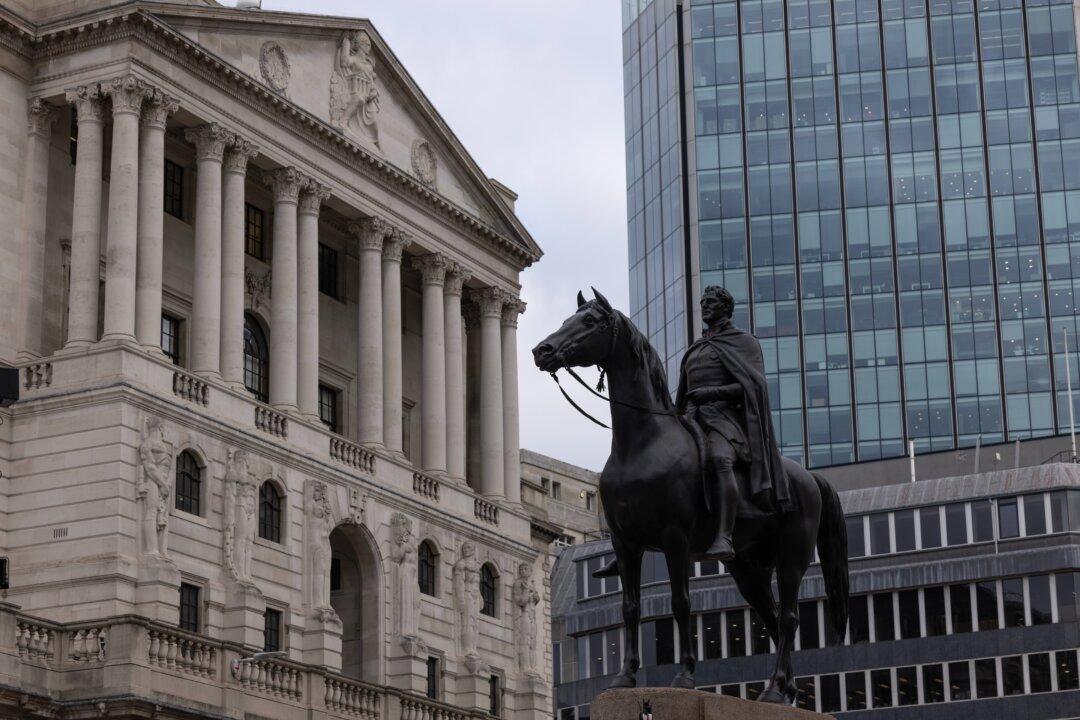The International Monetary Fund (IMF) expects the UK economy to grow more slowly than all other Group of Seven (G-7) advanced economies, though it has upgraded its forecast for the country.
The latest IMF forecast shows that UK economic output is expected to contract by 0.3 percent this year before rebounding to grow by 1 percent next year.





